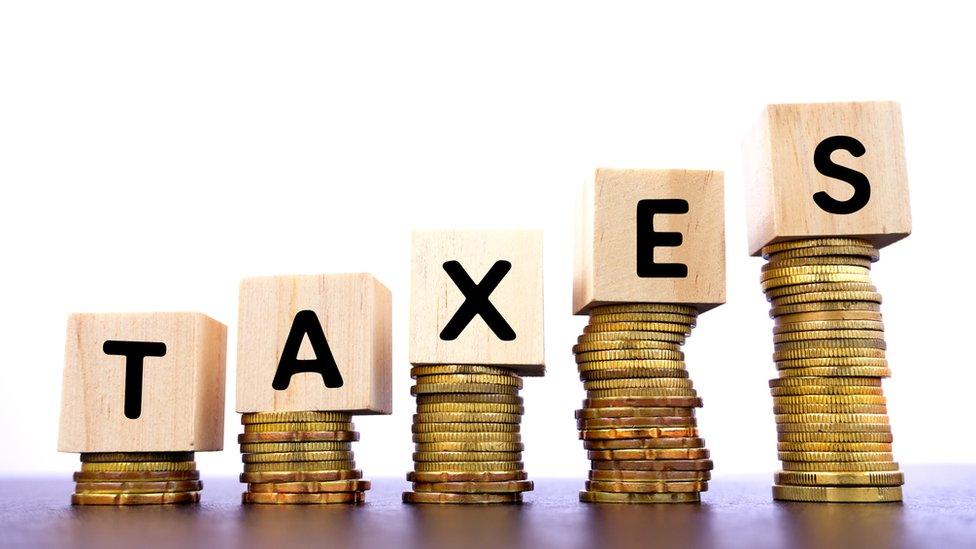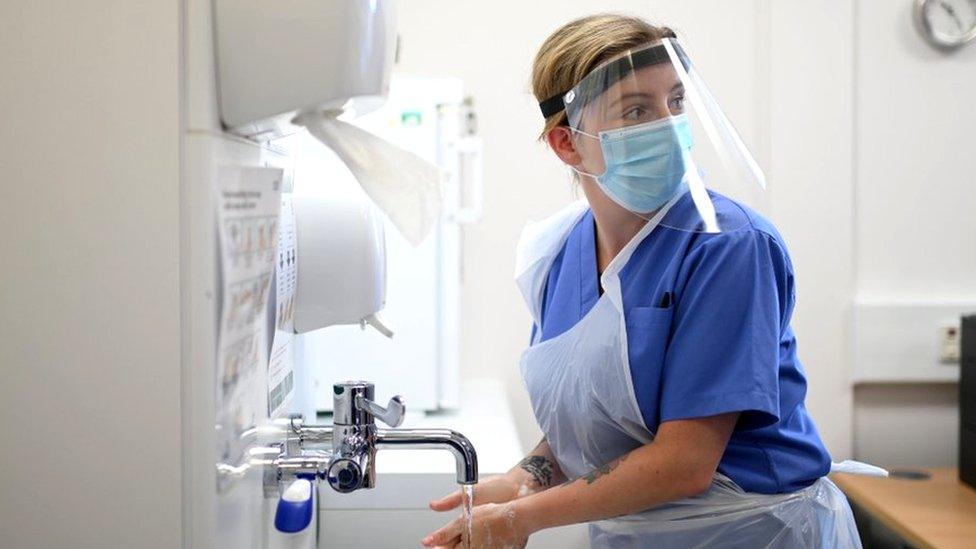Autumn Statement: Five things to look out for
- Published
Jeremy Hunt says he wants to make sure any recession is short and shallow
The Autumn Statement is the defining moment of Rishi Sunak's premiership - and one that could have a profound effect on our lives.
He and his Chancellor, Jeremy Hunt, say they want to restore the UK's financial credibility.
They also want to restore the Conservative Party's credibility with the voters.
The first step was to rip up the plans of their predecessors, Liz Truss and Kwasi Kwarteng.
Now they have to show us their plan to get the country through a cost-of-living crisis and a looming recession.
Here's what to look out for when Mr Hunt makes his statement on Thursday.
Tax rises

What a turn around. Previous chancellor Kwasi Kwarteng unveiled big tax cuts, with the promise of more to follow.
Not only has Jeremy Hunt scrapped all that, but he is looking for ways to raise another £20bn from taxes.
One way to do that is to freeze the thresholds between income tax bands - and to freeze them for a longer period of time.
That means as wages go up more people will find themselves in higher tax bands.
It is unlikely to be popular with Conservatives who hope to convince voters they are a low-tax party at the next general election.
Spending cuts

Tax rises won't be enough to close a gap in the UK government's finances, so Mr Hunt is expected to also rein in spending.
Financial markets were spooked by Kwasi Kwarteng's uncosted plans, so Mr Hunt wants to show them he will balance the books.
Departments in Whitehall will be told to live within their means. Because of the way it is funded, that means the Welsh government, which holds the purse strings for most of Wales' public sector, is unlikely to get much extra cash.
And cash is what we need, say Mark Drakeford and his ministers. Wales' funding increased significantly last year. But soaring inflation has wiped out a lot of the value of the budget
That's why Labour and Plaid Cymru warn about another era of austerity, similar to the Cameron-Osborne era in the 2010s when spending was slashed after the financial crisis.
Public sector pay

Commentators think this could be the most difficult conundrum facing Mr Hunt.
If public services do not get extra funding, how are they going to pay staff the wages they need to cope with rising costs?
Put simply, they can't. Something has to give. Either money is cut from somewhere else or employees face a cut in living standards.
This is a major headache for the Welsh government. Nurses in Wales have voted to go on strike after below-inflation pay offers. Teachers in Wales are being balloted on industrial action too.
Wales's finance minister Rebecca Evans will publish her budget on 13 December.
The extent to which she can fund pay rises for nurses, teachers and other public sector staff will, in large part, depend on what Mr Hunt says in the Commons.
Pensions and benefits

More than 600,000 people in Wales get the state pension. Around 60,000 receive out-of-work benefits.
Their fate has become a key test for the values of this Conservative government.
Should they go up in line with inflation (which, if you've read this far, you will know is very, very high) or should they be held down to save the Treasury some money?
It looks very likely Mr Hunt will inflation proof benefits and pensions. If it doesn't he can be assured of facing a lot of criticism, including from his own party.
Energy

Liz Truss committed to help people with eye-watering gas and electricity bills for two years.
But Mr Hunt changed that.
The existing energy price guarantee - which means a typical household pays no more than £2,500 a year - will finish in April, when it will be replaced by a scheme that is targeted on the people in greatest need of help.
Mr Hunt says his replacement scheme will cost the taxpayer "significantly less" - which means some consumers will probably pay more.